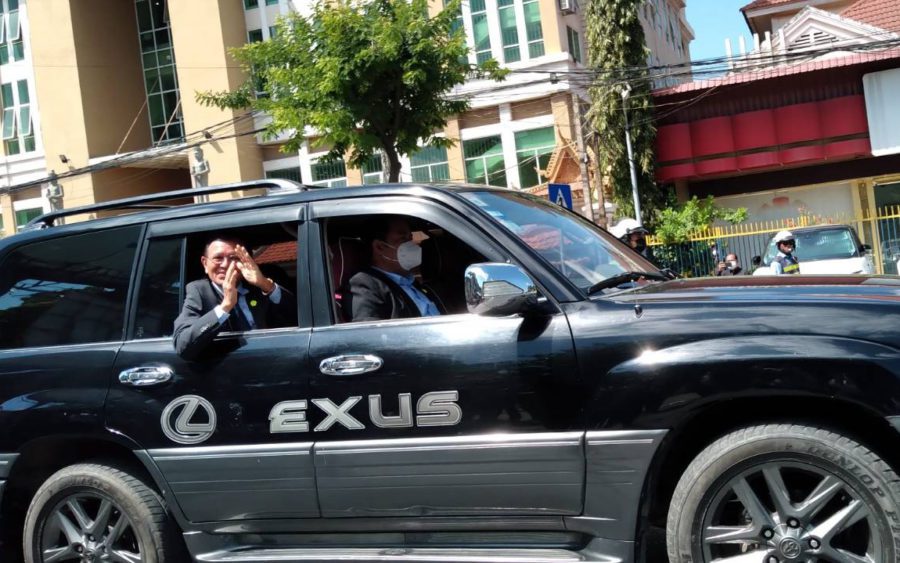Kem Sokha’s trial resumed on Wednesday to the usual squabbling between the prosecution and defense teams, with only a few new pieces of evidence produced in support of the CNRP leader’s defense.
The trial into treason charges first started more than two years and had seen constant disruption from all parties over procedures, evidence, formatting of documents and basic facts of the case. This was no different on Wednesday, when the defense presented two short video clips and three documents.
One clip showed Sokha meeting supporters in Siem Reap, while another depicted him calling for people to vote in the 2017 commune election. The documents included a Sam Rainsy Party and Human Rights Party letter to the National Election Commission to discuss electoral reform, as well as a CNRP statement on the commission and an RFA article about irregularities in the 2013 general election.
But even as defense lawyers tried to present this evidence, the prosecution and government lawyers questioned the validity and meaning of the evidence, leading to a back-and-forth with little progress made.
Meng Sopheary, a Sokha lawyer, said the 2013 Siem Reap video — in which the former CNRP president encourages people to vote and talks about his party policies — reveals that Sokha was not treasonous and that the prosecution had never pinpointed an event to prove their charge.
The prosecution has charged Sokha with treason but say the duration of the crime was from 1993 until he was arrested September 2017.
“Every offense needs to have clear time and places. No one commits a crime while sleeping,” she said, referring again to the expansive time range of the alleged crime.
Deputy prosecutor Plang Sophal immediately objected to her summation, questioning her use of the Siem Reap video as it did not have the exact date of the event where Sokha spoke.
“If [you] submit evidence, don’t allow yourself to be questioned as to why you submit [the evidence],” he said.
Government lawyer Ly Chantola agreed with Sophal and said the defense had to give specific information about their evidence. He said he would raise these points during closing arguments.
All three sides then argued about whether the prosecution can submit additional evidence, at which point judge Koy Sao called for an end to the tense discussion and warned them from using sarcastic words.
The trial will resume on March 2.












